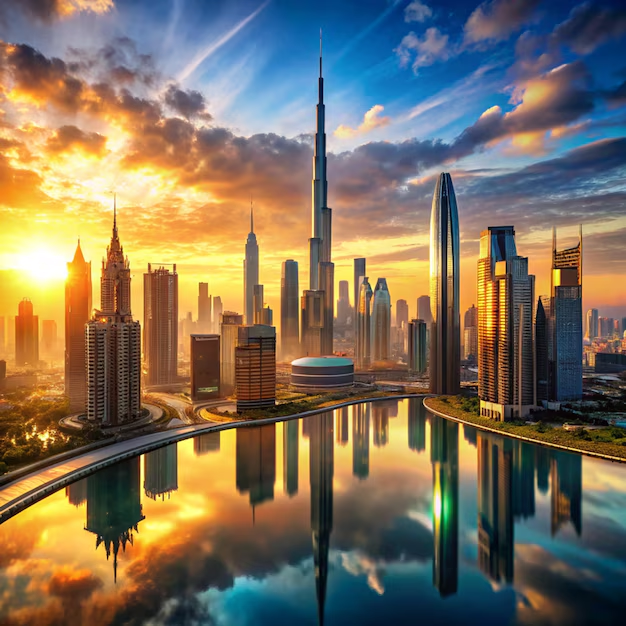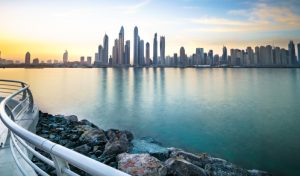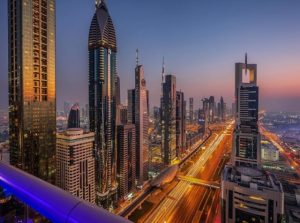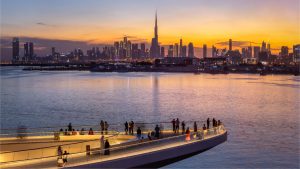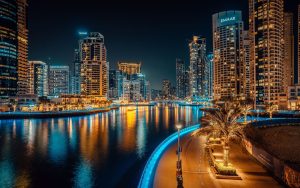ليس الأمر مجرد طوب وإسمنت
على الورق، الأمر لايبدو منطقيًا دائمًا. برجان على نفس الشارع، مخططات متشابهة، مناظر متطابقة — ومعذلك، أحدهما يباع بعلاوة سعرية ضخمة لأنه يحمل اسم علامة مثل LUX* أو ريتز-كارلتون أو أرماني. ومع ذلك،يقف المستثمرون في الطابور، وتضغط العائلات لزيادة ميزانياتها.
فما الذي يتم شراؤهحقًا؟ إنه ليس مجرد منزل. بل القصة المرفقة بالمنزل.
قوة المكانة
الإنسان مبرمج علىالسعي للاعتراف الاجتماعي. امتلاك شقة في مشروع يحمل علامة تجارية يحقق ذلك. الفرقبين أن تقول لشخص ما: “أسكن في برج X” وبين أن تقول:”أسكن في رزيدنس [اسم العلامة]”. الأولى تحصل على إيماءة، والثانية تثيرالانتباه والأسئلة.
الأمر ليس غرورًا فقط— بل إشارة اجتماعية. في مدن مثل دبي، حيث تُعرض قصص النجاح يوميًا، للمكانة وزن.العنوان الفاخر يصبح اختصارًا للإنجاز، والاستقرار، والانتماء إلى دائرة حصرية.
الثقة في الاسم
هناك جانب عمليأيضًا. المشترون يثقون في العلامات المرموقة أكثر من المطورين المجهولين. إدارةفندق فاخر لمكان سكنك تعني ضمنيًا:
• معايير خدمة أعلى.
• صيانة أفضل للمرافق.
• حماية طويلة الأمد للقيمة.
حتى لو لم يستخدمواالكونسيرج أو السبا، يدفع المشترون أكثر لأن العلامة تمنحهم الاطمئنان أنهم يقومونباستثمار آمن. إنه منطق مُغلف بعلم النفس.
الجاذبية العاطفية
هناك أيضًا جانبالطموح. السكن في مشروع يحمل علامة ليس فقط عن اليوم — بل عن أن تصبح الشخص الذي”ينتمي” لهذا المكان. المشترون يرونه كشراء أسلوب حياة، حتى إن كانتالحياة اليومية مشابهة لمبنى آخر غير مسمى.
المطورون يفهمون ذلك.تسويق هذه المشاريع نادرًا ما يبدأ بالمواصفات التقنية. بل يرسم صورة عاطفية:حصرية، خدمة، انتماء. ثم تأتي التفاصيل لاحقًا.
المستخدمون النهائيون مقابل المستثمرين
المثير أن هذهالسيكولوجية تعمل مع الطرفين:
• المستخدمون النهائيونيريدون الفخر بالارتباط. يحبون دخول ردهة فاخرة حيث يُنادى عليهم بالاسم وتصميماتداخلية بمعايير عالمية.
• المستثمرون يرون السيولة. يعرفون أن بيع أو تأجير مشروع يحمل علامة أسهلبكثير. الشعار على الكتيب يعمل كضمان.
من النادر أن يجذبمنتج واحد كلا الفئتين بهذه القوة، وهذا ما يفسر استمرار نمو خط المشاريع ذاتالعلامات التجارية في دبي.
مشكلة العلاوة
لكن العلاوة ليستصغيرة. غالبًا ما تُباع الوحدات السكنية ذات العلامات التجارية في دبي بزيادة20–35٪ مقارنة بالوحدات المشابهة غير المسماة. فهل يستحق الأمر؟
بالنسبة للكثيرين، لايهم الحساب بقدر ما تهم صورة القيمة. وهذا جوهر سيكولوجية المكانة: الناس لايشترون مجرد أمتار مربعة — بل يشترون ما تقوله هذه الأمتار عنهم.
قصص من السوق
يمكن رؤية ذلك بوضوح:
• مشترٍ اختار برجًامسمى في الخليج التجاري ليس بسبب المخطط (المماثل للبرج المجاور) ولكن لأن العلامةتمنحه اعترافًا عالميًا.
• مستثمر أوروبي قال: “إذا اضطررت لتأجيره، من الأسهل إقناع المستأجربالقيمة عندما يكون هناك اسم على الغلاف.”
• مشترٍ محلي اعترف بصراحة: “أستطيع تحمل شقة أكبر، لكن أفضل الأصغر باسميعرفه الجميع.”
قد يبدو غير عقلاني،لكنه ثابت ومتكرر.
لماذا دبي تحديدًا؟
هذا النمط موجودعالميًا، لكن في دبي يتضخم:
• مركز عالمي. المشترونيأتون من عشرات الدول، والعلامة العالمية تجسر فجوات الثقة.
• التموضع الفاخر. دبي تسوق نفسها كمدينة الأرقام القياسية، فالمكانة تتماشىمع ذلك.
• سوق تنافسي. مع كثرة المشاريع، العلامة تميز المشروع عن غيره.
باختصار: في سوقمزدحم، الأسماء تحمل وزنًا.
الوجه الآخر
لكن هناك مخاطر:
• الإفراط في العلامات.إذا أصبح كل برج “مسماة”، قد تتلاشى القيمة.
• ارتفاع رسوم الخدمة. التكاليف الأعلى تأتي أحيانًا مع العلامة، ما يردع بعضالعائلات.
• الفرق بين الصورة والواقع. العلامة قد تجذب المشترين في البداية، لكن إنضعفت الخدمة، تنهار هالة المكانة بسرعة.
المكانة لا تعمل إلاإذا تقاطعت مع الواقع.
نظرة للمستقبل
لن تحل المشاريع ذاتالعلامات محل المجتمعات التقليدية، لكنها ستظل قطاعًا قويًا في دبي. ما دامالمشترون يهتمون بالاعتراف، والانتماء، والاطمئنان، سيدفعون علاوة السعر.
الأمر أقل عنالمخططات وأكثر عن علم النفس. وهذا ما يعرف المطورون كيف يعبّرون عنه.
الكلمة الأخيرة
في النهاية، المشترونفي دبي لا يشترون منازل فقط. إنهم يشترون معنى. المكانة، الثقة، والهوية جميعهاتُغلف داخل الأمتار المربعة.
ولهذا تظل الوحداتذات العلامات التجارية محط الاهتمام — ليس لأنها دائمًا أكبر أو أجمل، بل لأنهامرتبطة بأسماء تجعل الناس يشعرون أنهم أكبر وأفضل.
